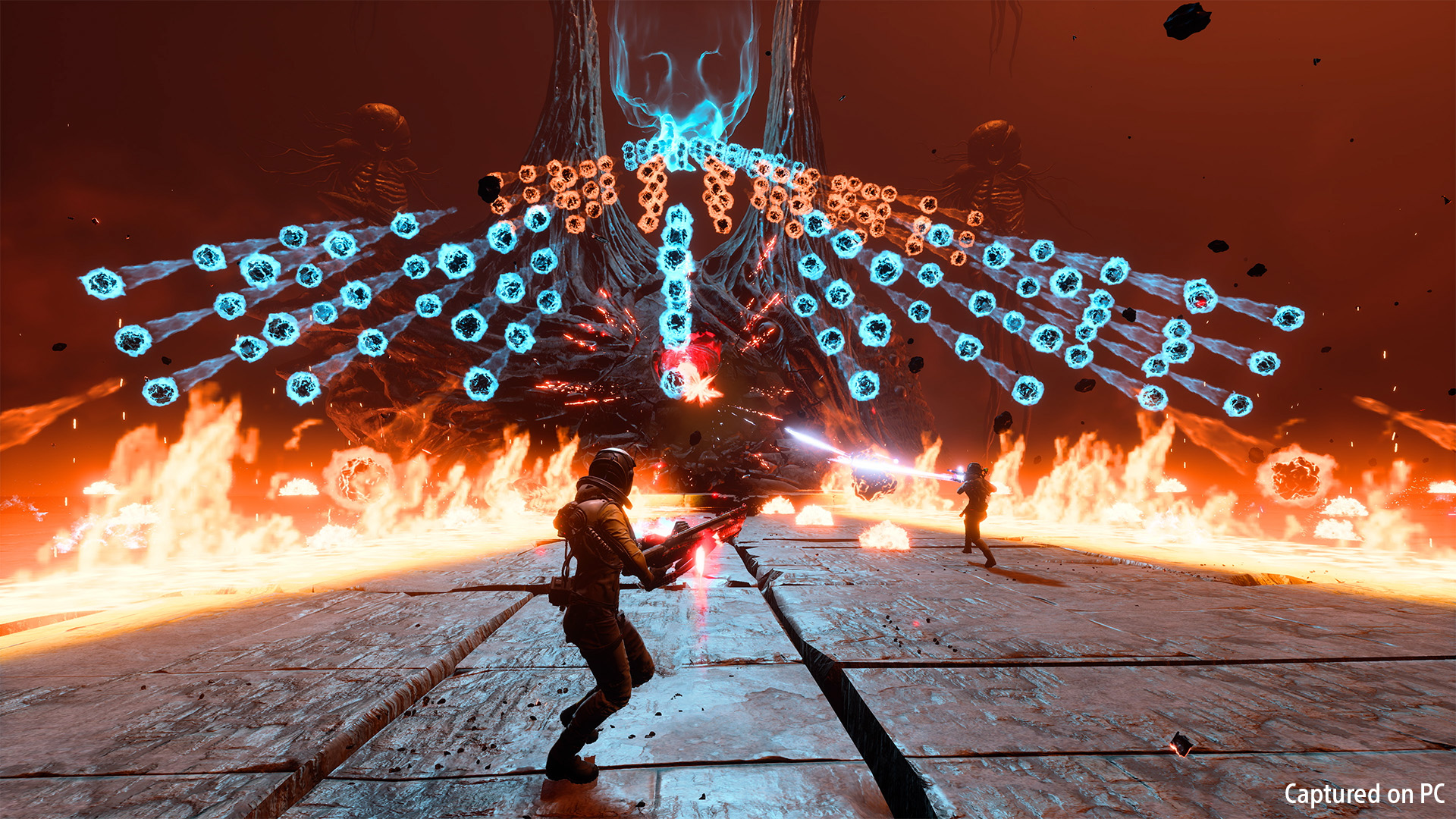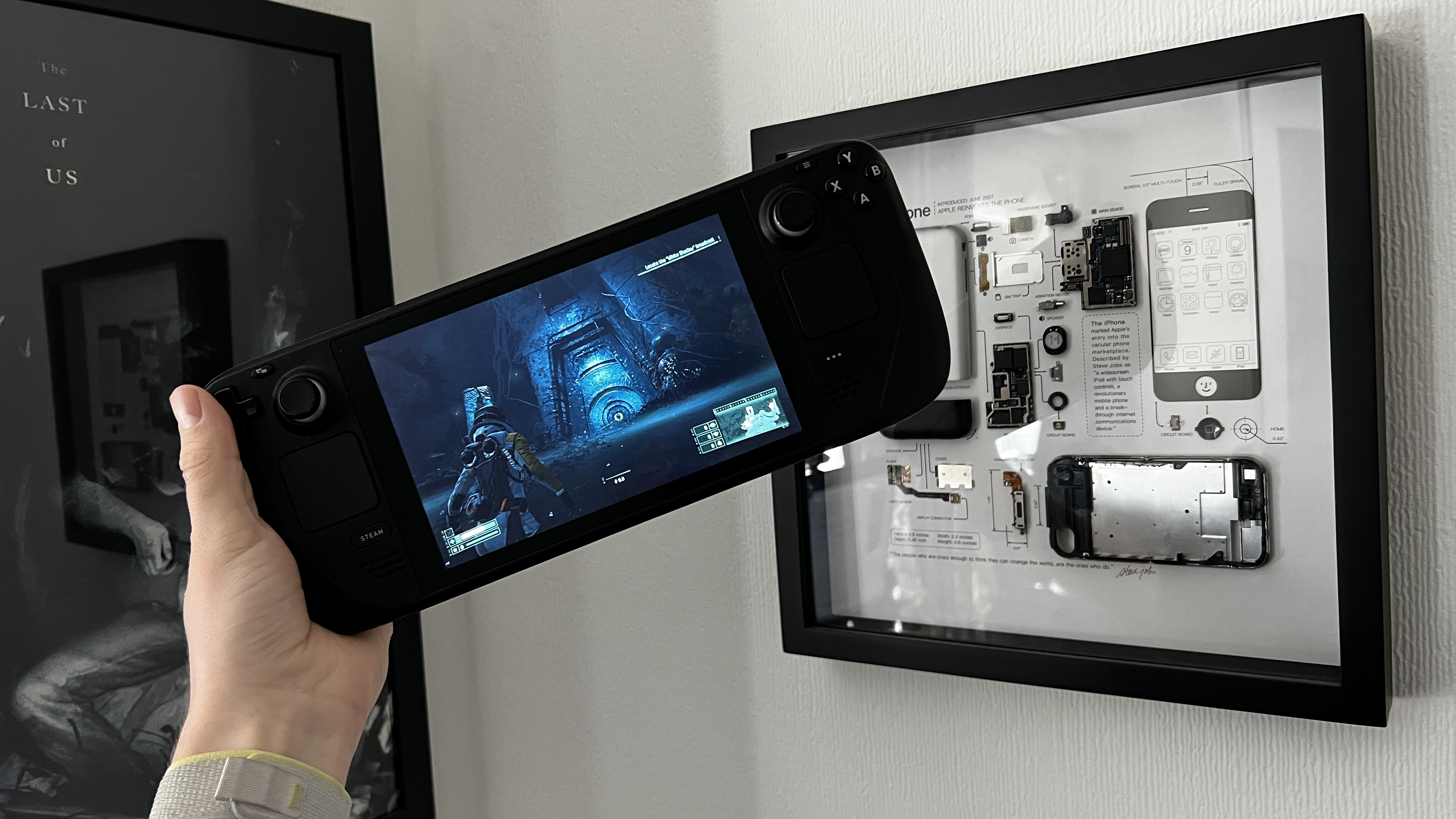Returnal runs great on PC, but there’s a Steam Deck problem
Is the Steam Deck running out of steam when it comes to PlayStation Studios' games?

Sign up to receive The Snapshot, a free special dispatch from Laptop Mag, in your inbox.
You are now subscribed
Your newsletter sign-up was successful
Returnal is dropping on PC and Steam Deck, and we’ve had some early hands-on time to see how it runs and recommend some settings configurations to make the most of it.
Back in 2021, we gave this PS5 game three stars in our review — applauding its fascinating storytelling and jaw dropping visuals, especially in the boss fights. But it was let down by some subpar roguelike elements, repetitive environments and low replay value.
However, that’s not to hamper how much of a success the game has been. Since then, PlayStation Studios snapped up Housemarque games, and a fan following has been growing rapidly around this stand out game. And finally, it is now the turn of Selene and her extraterrestrial adventure to get the PC treatment.
Does it run well on PC and Steam Deck? Are there any tweaks you should make to the graphics settings on start-up? We’ve got you covered.
Returnal on PC: how it runs
Put simply, it runs like a dream. But let me go into a little more detail here about why.
The array of graphical settings you can tweak allow this to be playable at smooth framerates on a ton of different spec machines. In my experience, I managed to get 60-70 FPS at 1080p on my old Asus ROG Zephyrus G15 with a GTX 1660 Ti and 3rd Gen AMD Ryzen 5 CPU — getting this required a mix of low and medium settings to accomplish.
Moving up the scale, my Asus TUF Gaming F15 with 12th Gen Intel Core i7 and RTX 3060 GPU accomplished the same feat with a mix of medium/high settings with Ray Tracing options turned off.
Sign up to receive The Snapshot, a free special dispatch from Laptop Mag, in your inbox.
And finally, the beasty Asus ROG Zephyrus M16 with RTX 4090 and Intel Core i9-13900H didn’t even break a sweat with maxed out settings — hitting 100 FPS with all the glorious ray traced lighting and epic visual fidelity that made Returnal so mind blowing in the first place.
There’s versatility built into these settings, which ensures you’re getting a good time on machines up to 3-4 years old.
Returnal on Steam Deck: how it runs

Returnal is the first of PlayStation Studios’ games that I feel a little bit iffy about when it comes to Steam Deck performance. Don’t get me wrong, it still runs okay — you’re continuing to get a solid 25-30 FPS most of the time, with minor dips to the low 20s when the on-screen elements really pick up.
But the pure speed and reaction times required in Returnal’s gameplay requires 60 FPS to really be at your best, and there were a few loops that ended poorly because of the chugging framerate. Maybe with full access to properly tweak the FSR settings in the future, this could be remedied, but don’t expect to be at your best currently.
Recommended settings
- Resolution: 1280 x 768
- Preset: Low
- Framerate lock: 30 FPS
Could we be hitting the ceiling of what the Steam Deck is capable of? Maybe, but with Marvel’s Spider-Man running so well, I’m left scratching my head about what the problem may be.
Of course, in the current version of Returnal we tested, there are no FSR 2.0 settings available, and my spider sense is telling me that once these become available, we could improve this situation dramatically. But time will tell with future updates.
Bottom Line
I can’t heap enough praise beyond what has already been said. It can be a slog at times, but this is one of the more creative endeavours to come out of PlayStation Studios in a while — packing a fascinatingly slick visual and sound design with a compelling plot.
And all of this works even better on PC, with the range of settings allowing you to get a smooth 60 FPS or better on machines dating back to 2020 in personal experience. Returnal’s not looking and playing so hot on Steam Deck right now, but I’m confident updates will allow for greater customization of settings to bring this framerate up.
But it’s worth noting again that I’m not really that much of a roguelike player, and yet I was still hooked to this game until the credits rolled. You owe it to yourself to give it a go.

Jason brought a decade of tech and gaming journalism experience to his role as a writer at Laptop Mag, and he is now the Managing Editor of Computing at Tom's Guide. He takes a particular interest in writing articles and creating videos about laptops, headphones and games. He has previously written for Kotaku, Stuff and BBC Science Focus. In his spare time, you'll find Jason looking for good dogs to pet or thinking about eating pizza if he isn't already.
